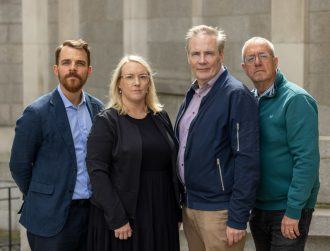Researchers at three Dublin universities have been awarded a significant boost in funding from the European Research Council (ERC). The ERC announced €684 million in its latest round of Synergy Grants, with teams from University College Dublin (UCD), Trinity College Dublin, and Dublin City University (DCU) among the 239 successful recipients. Each of the winning projects will receive approximately €10.3 million over six years.
The Synergy Grants are designed to promote collaboration among leading researchers and to advance the frontiers of scientific inquiry. In this competitive funding round, only about 10% of proposals were selected, underscoring the rigor of the application process. Teams of two to four principal investigators (PIs) can apply, with at least three of the PIs required to be based in EU member states or associated countries.
This year, the ERC noted an increase in international collaboration, with more than 40% of funded projects involving PIs from outside the EU. Despite this progress, women constituted just 25% of researchers involved in the winning projects.
Major Projects from Dublin Universities
Two notable projects involving Irish researchers have been funded in this round. The first, known as the ‘Disrupt’ project, is a collaboration led by Prof Leo de Vreede from TU Delft, with UCD’s Prof Anding Zhu and Prof Bogdan Staszewski as key contributors. This project aims to develop fully digital radio-frequency (RF) power architecture, which could reduce wireless network emissions by up to 50%.
Prof Zhu, who heads the RF and Microwave Research Group at UCD, emphasized the significance of the ERC grant for advancing wireless technology. He stated, “This €10 million grant empowers us to push the frontiers of wireless technology by combining advanced materials science, semiconductor device innovation and RF system architecture in a truly transformative way.” The project responds to the pressing issue of wireless network emissions, which currently account for 2-3% of global carbon dioxide emissions, a figure expected to rise with the expansion of 5G and 6G communications.
The second project, titled ‘Justice: Joining Unique Strategies Together For Interrogative Coercion Elimination’, involves DCU’s Prof Yvonne Daly and Trinity’s Prof Shane O’Mara. This interdisciplinary team seeks to investigate coercive interrogation practices, aiming to develop more effective and humane interviewing techniques that protect individual rights and enhance reliability in obtaining information.
Prof O’Mara, who leads the Justice project, explained the initiative’s focus: “By combining law, psychology, neuroscience and data science, we’ll attempt to pinpoint when and why coercion creeps into interviews, and devise practical ways to prevent it.” The project includes experts from various institutions, including Prof Dave Walsh from De Montfort University and Dr Bennett Kleinberg from Tilburg University.
The Importance of International Collaboration
The announcement of the Synergy Grants on November 6, 2023, was accompanied by statements highlighting the importance of global collaboration in research. European Commissioner for Start-ups, Research and Innovation, Ekaterina Zaharieva, remarked on the international nature of this year’s awardees. She stated, “Europe’s frontier research has never been so international. This global collaboration strengthens European science, gives our researchers access to world-class expertise and infrastructure, and brings leading scientists from around the world closer to Europe.”
As the ERC continues to support groundbreaking research, the successful projects from Dublin universities exemplify the potential for scientific advancements through collaboration across disciplines and borders. With the resources provided by these grants, researchers aim to address pressing global challenges and enhance the scientific landscape in Europe and beyond.







